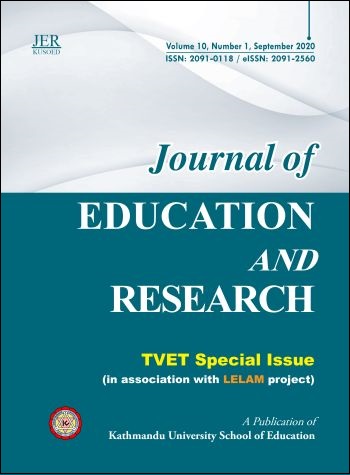Unequal Access to TVET Programmes in Nepal: Impact of Neo-Liberalism
Keywords:
neoliberalism, economic class, investment, TVET, education, schoolAbstract
The technical and vocational education and training (TVET) system in Nepal, initiated formally in 1989, was supposed to grow speedily and make a significant contribution to the Nepali society. Though equal access to TVET has been set as a priority, a vast and widespread inequality of access to TVET is unquestionably apparent. In this context, the purpose of this paper is to find out the factors hindering equal access to TVET in Nepal. In terms of theory, this paper employs a Marxian perspective to discuss how neoliberal policies have significantly limited and restricted the access of poor students to TVET programmes. Methodologically, this paper is based on secondary data gathered from different credible sources and employs informal reasoning to arrive at the conclusions and back them up. Sources of secondary data include educational policies of the Government of Nepal, different policy papers, various national and international journal articles. The study concludes that the neoliberal economy is responsible for reinforcing unequal access to education by preventing the reshaping public education, which, otherwise, could have created better and relatively equal access of all children, rich and poor alike.




